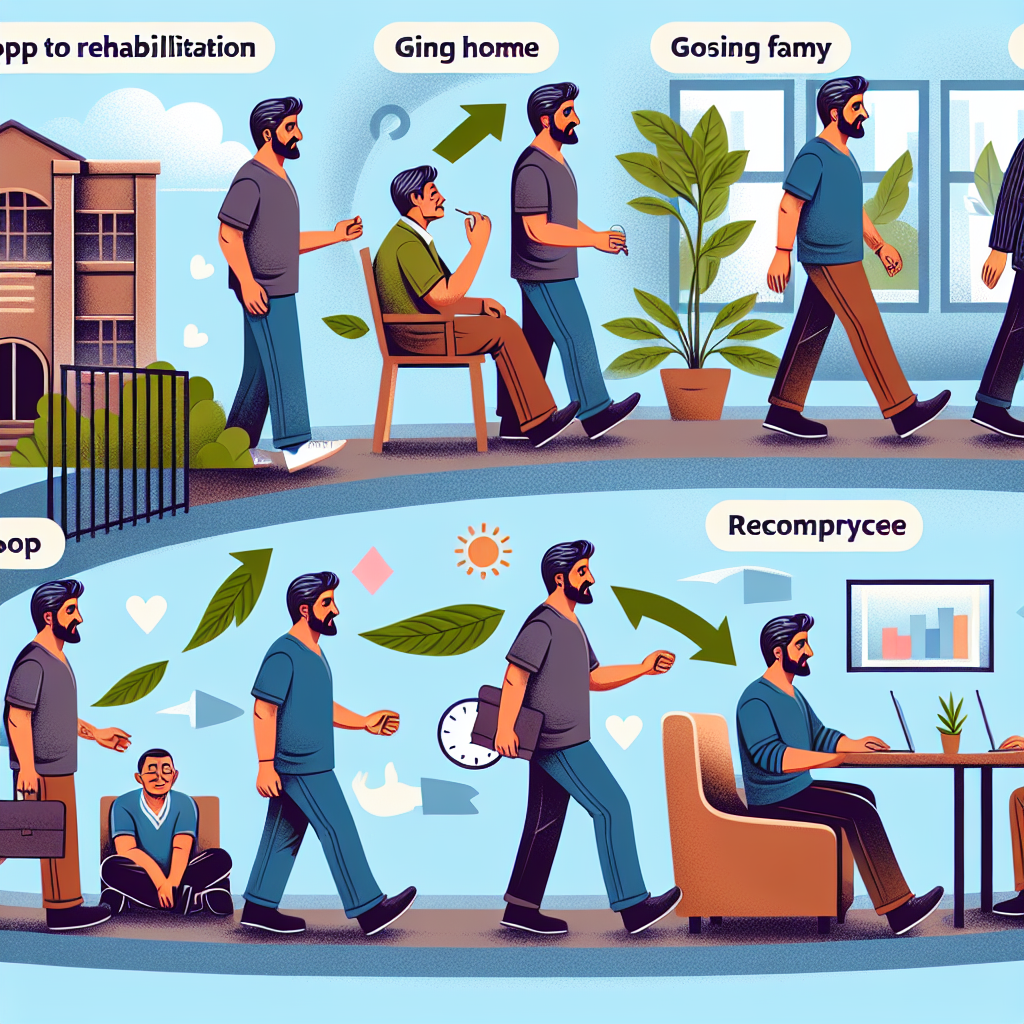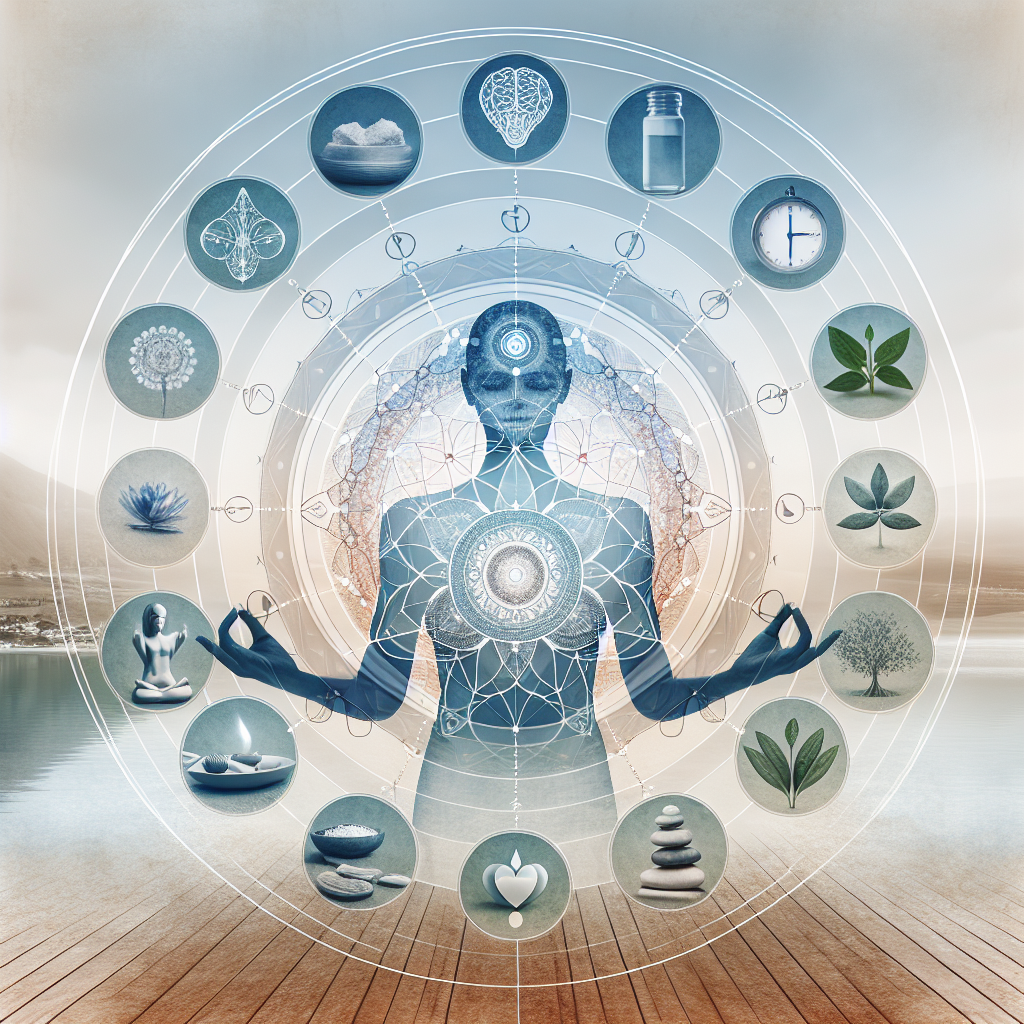-
Table of Contents
- Introduction
- Rediscovering Passion: How to Reignite Your Interests Post-Recovery
- Building a Support Network: The Importance of Community in Finding Purpose
- Setting New Goals: Steps to Create a Fulfilling Life After Addiction
- Mindfulness and Meditation: Tools for Self-Discovery and Purpose
- Q&A
- Conclusion
“Rediscover Life: Embrace Purpose Beyond Recovery”
Introduction

Finding purpose after recovering from LSD addiction is a profound and transformative journey that involves rediscovering one’s identity, values, and passions. This process often requires deep introspection, support from loved ones, and professional guidance. As individuals emerge from the shadows of addiction, they face the challenge of rebuilding their lives and finding new meaning. This journey is not just about staying sober but about creating a fulfilling and purposeful life that aligns with their true selves. By embracing new opportunities, setting meaningful goals, and fostering a sense of community, those in recovery can find a renewed sense of purpose and direction.
Rediscovering Passion: How to Reignite Your Interests Post-Recovery
Recovering from LSD addiction is a monumental achievement, a testament to one’s resilience and strength. However, the journey doesn’t end with sobriety; it continues as you navigate the path to rediscovering your passions and reigniting your interests. This phase of recovery is crucial, as it helps to fill the void left by addiction and fosters a sense of purpose and fulfillment.
Initially, it may seem daunting to reconnect with activities and interests that once brought joy. The haze of addiction often clouds memories and diminishes enthusiasm for past hobbies. Yet, this period of rediscovery is an opportunity to explore new avenues and rekindle old flames. Start by reflecting on what used to excite you before addiction took hold. Was it painting, writing, playing a musical instrument, or perhaps engaging in sports? Revisiting these activities can serve as a gentle reminder of the joy they once brought.
As you embark on this journey, it’s essential to be patient with yourself. Recovery is a gradual process, and so is the rekindling of passions. Begin with small, manageable steps. If you enjoyed painting, start with simple sketches or doodles. If writing was your passion, jot down your thoughts in a journal. These small actions can gradually build momentum and reignite your interest.
Moreover, exploring new interests can be incredibly rewarding. The world is brimming with opportunities waiting to be discovered. Consider taking up a new hobby or learning a new skill. Enroll in a cooking class, try your hand at gardening, or learn a new language. These activities not only provide a sense of accomplishment but also open doors to new social connections, which are vital for a healthy recovery.
Engaging in physical activities can also play a significant role in rediscovering your passions. Exercise has been proven to boost mood and reduce stress, making it an excellent tool for those in recovery. Whether it’s yoga, hiking, or joining a local sports team, physical activities can help you reconnect with your body and mind, fostering a sense of well-being.
In addition to personal hobbies, consider volunteering or getting involved in community activities. Helping others can provide a profound sense of purpose and fulfillment. It shifts the focus from your struggles to the positive impact you can have on others’ lives. Volunteering at a local shelter, participating in community clean-ups, or mentoring someone in need can be incredibly rewarding and help you rediscover your sense of purpose.
It’s also important to surround yourself with supportive and positive influences. Building a network of friends and family who encourage your interests and passions can make a significant difference. Attend support groups or join clubs related to your interests. These connections can provide motivation, inspiration, and a sense of belonging.
Throughout this journey, remember to celebrate your progress, no matter how small. Each step towards rediscovering your passions is a victory. Acknowledge your achievements and be kind to yourself. Recovery is not a linear path, and there will be ups and downs. Embrace the process and trust that with time, patience, and perseverance, you will find joy and purpose once again.
In conclusion, rediscovering your passions post-recovery is a vital step towards a fulfilling life. By reflecting on past interests, exploring new activities, engaging in physical exercise, volunteering, and surrounding yourself with supportive influences, you can reignite your interests and find a renewed sense of purpose. This journey is not just about staying sober; it’s about thriving and embracing the endless possibilities that life has to offer.
Building a Support Network: The Importance of Community in Finding Purpose
Recovering from LSD addiction is a monumental achievement, but the journey doesn’t end with sobriety. One of the most crucial steps in finding purpose after recovery is building a robust support network. The importance of community in this process cannot be overstated, as it provides the foundation for a fulfilling and meaningful life post-addiction.
Initially, the transition from addiction to recovery can feel isolating. The absence of the substance that once dominated your life leaves a void that can be difficult to fill. However, this is where the power of community comes into play. Surrounding yourself with individuals who understand your struggles and support your journey can make all the difference. These connections offer not only emotional support but also practical advice and shared experiences that can guide you through the complexities of recovery.
Moreover, engaging with a community helps to combat the loneliness that often accompanies the early stages of sobriety. By participating in support groups, whether in-person or online, you can find solace in knowing that you are not alone. These groups provide a safe space to share your thoughts and feelings without fear of judgment. The sense of belonging that comes from being part of a community can significantly boost your self-esteem and motivation, which are essential for maintaining long-term sobriety.
In addition to support groups, reconnecting with family and friends can also play a pivotal role in your recovery journey. These relationships, when nurtured, can offer a sense of stability and unconditional love. It’s important to communicate openly with your loved ones about your needs and boundaries as you navigate this new chapter of your life. Their understanding and encouragement can be a powerful source of strength, helping you to stay focused on your goals and aspirations.
Furthermore, finding purpose often involves giving back to the community that has supported you. Volunteering or mentoring others who are struggling with addiction can be incredibly rewarding. Not only does it provide a sense of accomplishment, but it also reinforces your commitment to sobriety. By sharing your story and offering guidance, you can inspire others to embark on their own recovery journeys. This reciprocal relationship fosters a deeper sense of connection and purpose, as you witness the positive impact of your contributions.
Additionally, engaging in activities that align with your interests and passions can help you to rediscover your sense of self. Whether it’s pursuing a new hobby, furthering your education, or embarking on a new career path, these endeavors can provide a sense of direction and fulfillment. The support of your community can be invaluable in these pursuits, offering encouragement and celebrating your achievements along the way.
It’s also important to recognize that building a support network is an ongoing process. Relationships require time and effort to develop and maintain. Regularly attending support group meetings, staying in touch with loved ones, and actively participating in community activities can help to strengthen these bonds. As you continue to invest in your support network, you’ll find that it becomes an integral part of your life, providing a constant source of encouragement and inspiration.
In conclusion, the journey to finding purpose after recovering from LSD addiction is deeply intertwined with the strength of your support network. By surrounding yourself with a community that understands and supports your journey, you can navigate the challenges of recovery with greater resilience and confidence. Through shared experiences, open communication, and mutual support, you can build a fulfilling and meaningful life, grounded in the connections that uplift and inspire you.
Setting New Goals: Steps to Create a Fulfilling Life After Addiction
Recovering from LSD addiction is a monumental achievement, one that requires immense strength, resilience, and determination. However, the journey doesn’t end with sobriety; it is merely the beginning of a new chapter. Setting new goals and creating a fulfilling life after addiction is essential for maintaining long-term recovery and finding a renewed sense of purpose. This process involves several steps, each contributing to a holistic approach to personal growth and well-being.
Firstly, it is crucial to reflect on the past and understand the underlying reasons that led to addiction. This self-awareness can be achieved through therapy, support groups, or personal introspection. By identifying triggers and patterns, individuals can develop strategies to avoid relapse and make more informed decisions moving forward. This foundation of self-knowledge is vital for setting realistic and meaningful goals.
Once there is a clear understanding of the past, the next step is to envision a future that aligns with personal values and aspirations. This involves setting both short-term and long-term goals. Short-term goals might include daily routines that promote physical and mental health, such as regular exercise, healthy eating, and mindfulness practices. Long-term goals could encompass career aspirations, educational pursuits, or personal projects that ignite passion and creativity. By breaking down these goals into manageable steps, the path to achieving them becomes more attainable and less overwhelming.
In addition to setting goals, it is important to build a strong support network. Surrounding oneself with positive influences, whether they be family, friends, or support groups, can provide encouragement and accountability. These relationships offer a sense of belonging and remind individuals that they are not alone in their journey. Moreover, engaging in community activities or volunteering can foster a sense of purpose and connection, further reinforcing the commitment to a fulfilling life.
Another essential aspect of creating a fulfilling life after addiction is to cultivate new interests and hobbies. Exploring different activities can help individuals discover new passions and talents, providing a sense of accomplishment and joy. Whether it’s painting, hiking, writing, or learning a musical instrument, these pursuits can serve as healthy outlets for self-expression and stress relief. They also offer opportunities to meet like-minded individuals and build new, positive relationships.
Furthermore, it is important to practice self-compassion and patience throughout this process. Recovery is not linear, and setbacks are a natural part of the journey. Embracing these challenges with a growth mindset allows individuals to learn from their experiences and continue moving forward. Celebrating small victories and acknowledging progress, no matter how minor, can boost confidence and motivation.
Lastly, seeking professional guidance can be incredibly beneficial. Life coaches, therapists, and counselors can provide valuable insights and tools to help navigate the complexities of post-addiction life. They can assist in goal-setting, offer coping strategies, and provide a safe space to explore emotions and experiences. This professional support can be a crucial component in maintaining long-term recovery and achieving personal goals.
In conclusion, finding purpose after recovering from LSD addiction involves a multifaceted approach that includes self-reflection, goal-setting, building a support network, exploring new interests, practicing self-compassion, and seeking professional guidance. By taking these steps, individuals can create a fulfilling and meaningful life, one that not only sustains their sobriety but also allows them to thrive and grow. The journey may be challenging, but with determination and support, it is entirely possible to transform one’s life and find a renewed sense of purpose.
Mindfulness and Meditation: Tools for Self-Discovery and Purpose
Recovering from LSD addiction is a monumental achievement, but the journey doesn’t end with sobriety. For many, the next step involves finding a renewed sense of purpose and direction in life. This is where mindfulness and meditation can play a transformative role. These practices not only aid in maintaining sobriety but also serve as powerful tools for self-discovery and purpose.
Mindfulness, the practice of being fully present in the moment, helps individuals reconnect with themselves and their surroundings. After the chaotic and often disorienting experience of addiction, mindfulness offers a grounding force. It encourages individuals to observe their thoughts and feelings without judgment, fostering a deeper understanding of their inner world. This heightened awareness can be particularly beneficial for those recovering from LSD addiction, as it helps them navigate the lingering psychological effects and emotional turbulence that may arise.
Meditation, a complementary practice to mindfulness, involves focused attention and mental clarity. Through regular meditation, individuals can cultivate a sense of inner peace and stability. This practice can be especially valuable for those in recovery, as it provides a structured way to manage stress and anxiety, which are common triggers for relapse. By creating a calm and centered mind, meditation allows individuals to approach their recovery journey with greater resilience and determination.
As individuals delve deeper into mindfulness and meditation, they often experience a shift in perspective. They begin to see themselves not just as someone recovering from addiction, but as a person with unique strengths, aspirations, and potential. This shift is crucial for finding purpose. When the fog of addiction lifts, it reveals a landscape of possibilities that were previously obscured. Mindfulness and meditation help individuals explore this new terrain with curiosity and openness.
Moreover, these practices encourage self-compassion and forgiveness. Many people struggling with addiction carry a heavy burden of guilt and shame. Mindfulness teaches them to treat themselves with the same kindness and understanding they would offer a friend. This self-compassion is a vital component of healing, as it allows individuals to move forward without being weighed down by past mistakes. It also fosters a sense of worthiness, which is essential for pursuing meaningful goals and aspirations.
In addition to personal growth, mindfulness and meditation can also enhance one’s connection to others. Addiction often isolates individuals, straining relationships and eroding social support networks. By fostering empathy and emotional intelligence, these practices help individuals rebuild and strengthen their connections with loved ones. This renewed sense of community can provide a supportive foundation for exploring new interests and passions.
As individuals continue to practice mindfulness and meditation, they may discover new interests and talents that were previously overshadowed by addiction. Whether it’s pursuing a creative endeavor, engaging in volunteer work, or embarking on a new career path, these practices can illuminate a path forward. They encourage individuals to set intentions and take deliberate steps towards their goals, fostering a sense of purpose and fulfillment.
In conclusion, mindfulness and meditation are invaluable tools for those recovering from LSD addiction. They offer a pathway to self-discovery, helping individuals reconnect with their true selves and uncover their unique purpose in life. By cultivating inner peace, self-compassion, and meaningful connections, these practices empower individuals to build a fulfilling and purposeful life beyond addiction. The journey of recovery is ongoing, but with mindfulness and meditation, it becomes a journey of growth, discovery, and endless possibilities.
Q&A
1. **What are some effective ways to find purpose after recovering from LSD addiction?**
– Engaging in therapy or counseling, exploring new hobbies and interests, volunteering, and setting personal and professional goals.
2. **How can therapy help in finding purpose post-LSD addiction?**
– Therapy can provide guidance, support, and tools to understand oneself better, address underlying issues, and set meaningful goals.
3. **Why is volunteering beneficial for someone recovering from LSD addiction?**
– Volunteering can provide a sense of fulfillment, community connection, and a way to give back, which can help in building a new sense of purpose.
4. **What role do hobbies play in finding purpose after addiction recovery?**
– Hobbies can help individuals discover new passions, provide a constructive use of time, and contribute to a sense of achievement and joy.
Conclusion
Finding purpose after recovering from LSD addiction involves a multifaceted approach that includes self-reflection, setting meaningful goals, and seeking supportive communities. Recovery provides an opportunity to rediscover personal values and passions that may have been overshadowed by substance use. Engaging in therapy, pursuing hobbies, and building healthy relationships can foster a sense of fulfillment and direction. Ultimately, the journey to finding purpose is deeply personal and requires ongoing commitment to personal growth and well-being.



